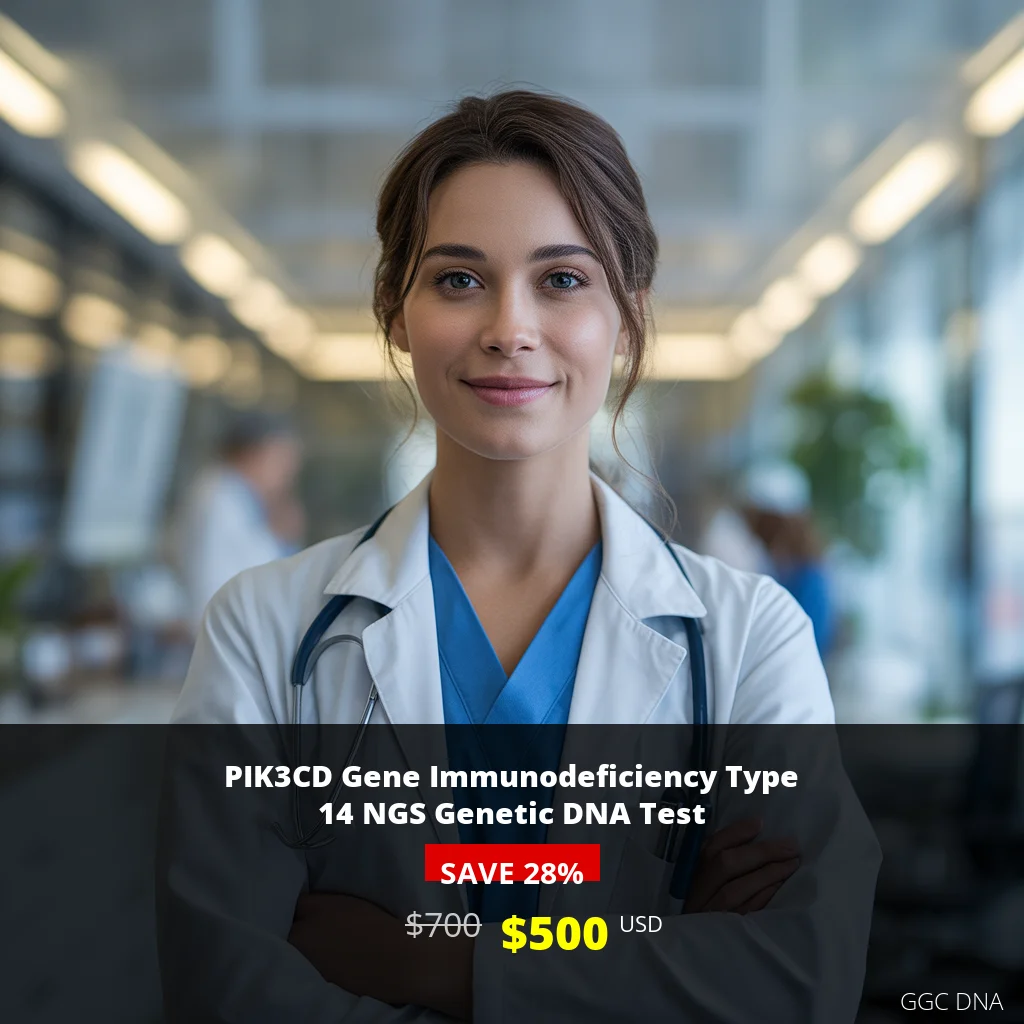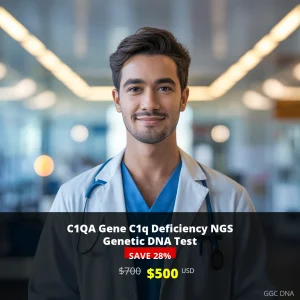PIK3CD Gene Immunodeficiency Type 14 NGS Genetic DNA Test
Comprehensive Genetic Analysis for Immune System Disorders
The PIK3CD Gene Immunodeficiency Type 14 NGS Genetic DNA Test represents a breakthrough in genetic diagnostics for immune system disorders. This advanced test specifically targets mutations in the PIK3CD gene, which plays a critical role in regulating immune cell function and development. Immunodeficiency type 14 is a rare genetic condition characterized by compromised immune responses, making patients susceptible to recurrent infections and autoimmune complications.
What Does This Test Measure?
This sophisticated genetic test utilizes Next-Generation Sequencing (NGS) technology to comprehensively analyze the PIK3CD gene for:
- Point mutations and single nucleotide variations
- Insertions and deletions affecting gene function
- Copy number variations and structural abnormalities
- Pathogenic variants associated with immunodeficiency type 14
- Genetic markers influencing immune system regulation
Who Should Consider This Test?
This genetic screening is particularly recommended for individuals experiencing:
- Recurrent bacterial, viral, or fungal infections
- Unexplained autoimmune symptoms
- Chronic inflammatory conditions affecting multiple systems
- Family history of immune system disorders
- Dermatological manifestations with immune involvement
- Osteological abnormalities with immunological components
- Diagnostic uncertainty in complex immunological presentations
Clinical Benefits of PIK3CD Genetic Testing
Undergoing this comprehensive genetic analysis provides numerous advantages:
- Precise Diagnosis: Accurate identification of PIK3CD mutations enables targeted treatment approaches
- Personalized Treatment: Results guide immunotherapy and management strategies
- Family Planning: Genetic counseling based on test results supports informed reproductive decisions
- Early Intervention: Detection before severe complications develop improves long-term outcomes
- Comprehensive Care: Integration with dermatology, immunology, and osteology specialists
Understanding Your Test Results
Our genetic specialists provide detailed interpretation of your results:
- Positive Result: Indicates presence of PIK3CD mutation; comprehensive management plan development
- Negative Result: No detected mutation; alternative diagnostic pathways explored
- Variant of Uncertain Significance: Requires additional family studies and clinical correlation
- Carrier Status: Important for genetic counseling and family planning considerations
Test Pricing Information
| Price Type | Amount (USD) |
|---|---|
| Discount Price | $500 |
| Regular Price | $700 |
Test Specifications
- Turnaround Time: 3 to 4 Weeks
- Sample Type: Blood, Extracted DNA, or One Drop Blood on FTA Card
- Methodology: Next-Generation Sequencing (NGS) Technology
- Specialty: Genetics, Dermatology, Immunology
- Department: Genetics
Pre-Test Requirements
Before undergoing testing, patients should provide:
- Complete clinical history relevant to immune system function
- Genetic counseling session to create detailed family pedigree
- Documentation of affected family members with similar symptoms
- Current medication list and previous diagnostic results
Nationwide Accessibility
We proudly serve patients across the United States with convenient testing locations in all major metropolitan areas including New York, Los Angeles, Chicago, Houston, Phoenix, and Philadelphia. Our network of certified genetic counselors and specialists ensures comprehensive care regardless of your location.
Take Action for Your Health
Don’t let unexplained immune symptoms compromise your quality of life. The PIK3CD Gene Immunodeficiency Type 14 NGS Genetic DNA Test provides the clarity needed for effective management and treatment. Our team of genetic specialists is ready to guide you through the testing process and help interpret your results for optimal health outcomes.
Call us today at +1(267) 388-9828 to schedule your genetic counseling session and book your test. Take the first step toward understanding your genetic health and developing a personalized treatment strategy.







